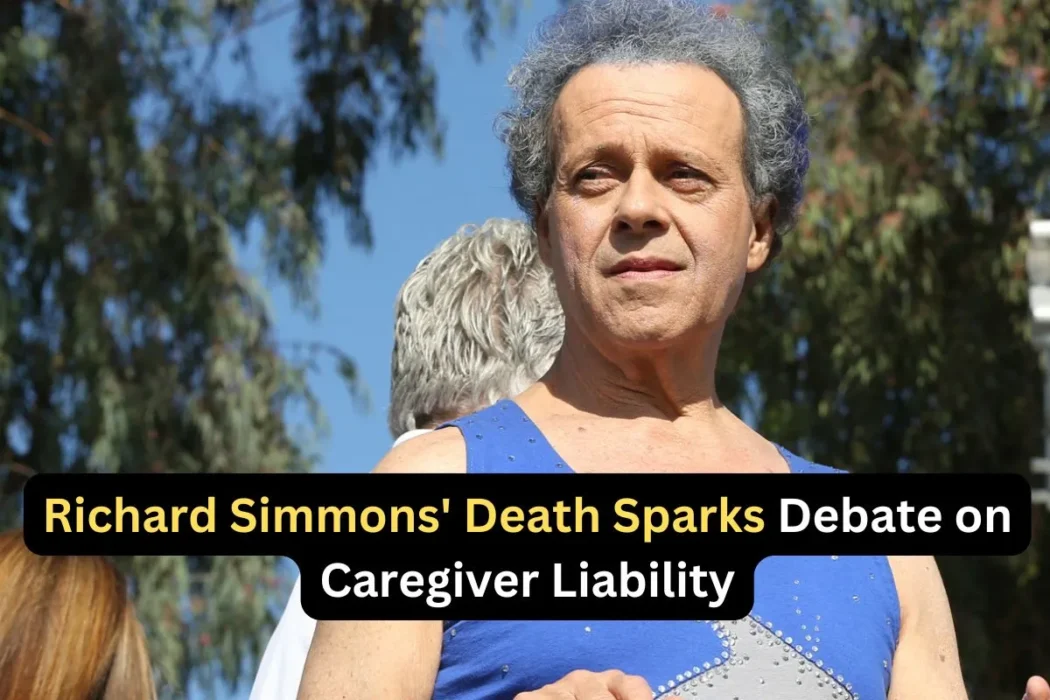Richard Simmons, a beloved fitness personality known for his vibrant energy and dedication to helping others lead healthier lives, tragically passed away on July 13, 2024, just a day after his 76th birthday. His cause of death has been confirmed as accidental, due to complications from recent falls, with heart disease also cited as a contributing factor. This revelation has raised several legal and ethical questions regarding the care and safety of elderly individuals, particularly those living alone or with limited supervision.
The Legal Perspective on Elderly Care and Liability
From a legal standpoint, Richard Simmons’ death underscores the importance of ensuring adequate care and supervision for elderly individuals, especially those with pre-existing health conditions. In many jurisdictions, the duty of care extends to caregivers, whether they are family members, hired professionals, or healthcare providers. The legal concept of “duty of care” requires that these individuals take reasonable steps to prevent harm to those under their supervision.
In Simmons’ case, reports indicate that he may have fallen in his bathroom on the night of his birthday but declined medical attention at the behest of his housekeeper. The next morning, he was found unresponsive beside his bed. This scenario raises critical questions about the adequacy of the care he received and whether more could have been done to prevent his untimely death.
Also Read New Immigration Law for Married Couple: Key Changes
Potential Legal Actions and Investigations
While the coroner’s report ruled Simmons’ death as accidental, it does not preclude the possibility of further legal scrutiny. The law often requires an examination of whether negligence played a role in the incident. If it is determined that the housekeeper or any other caregiver failed to act in accordance with the standard duty of care, they could potentially face legal repercussions. This could include civil lawsuits for wrongful death or negligence, depending on the findings of any subsequent investigations.
Moreover, the incident may lead to broader legal discussions about the responsibilities of caregivers in similar situations. For instance, in many states, there are laws that mandate reporting certain types of injuries or health concerns, particularly when they involve vulnerable populations such as the elderly. Failure to report or adequately address such concerns can result in legal consequences for the caregiver or responsible party.
Ethical Considerations and the Importance of Elderly Care
Beyond the legal implications, Richard Simmons’ death also highlights significant ethical considerations regarding the treatment and care of elderly individuals. As people age, they often become more susceptible to falls and other accidents, which can have devastating consequences. This reality places a moral responsibility on caregivers and family members to ensure that appropriate measures are in place to prevent such incidents.
Ethically, it is essential to consider the autonomy and wishes of elderly individuals like Simmons. Reports suggest that Simmons declined medical attention after his fall, which raises questions about how much autonomy should be respected versus when caregivers should override such decisions for the individual’s safety. Balancing respect for autonomy with the need to protect vulnerable individuals is a complex ethical dilemma that requires careful consideration.
Also Read MyPascoConnect: Pasco County Schools Online Portal
Implications for Public Awareness and Policy
The tragic loss of Richard Simmons serves as a somber reminder of the need for public awareness and policy initiatives aimed at improving elderly care. This incident could prompt lawmakers to revisit regulations surrounding eldercare, particularly in terms of safety protocols and caregiver responsibilities. For example, there may be discussions about implementing stricter guidelines for in-home care providers or increasing training requirements to better equip them to handle situations like the one Simmons faced.
In conclusion, while Richard Simmons’ death has been ruled accidental, it has brought to light critical legal and ethical issues surrounding the care of elderly individuals. As society continues to grapple with the challenges of an aging population, it is essential to ensure that the legal framework and caregiving practices evolve to protect the most vulnerable among us. Richard Simmons’ legacy as a compassionate figure in the fitness world will undoubtedly continue to inspire, but his death also serves as a call to action to address the ongoing challenges in elderly care.

